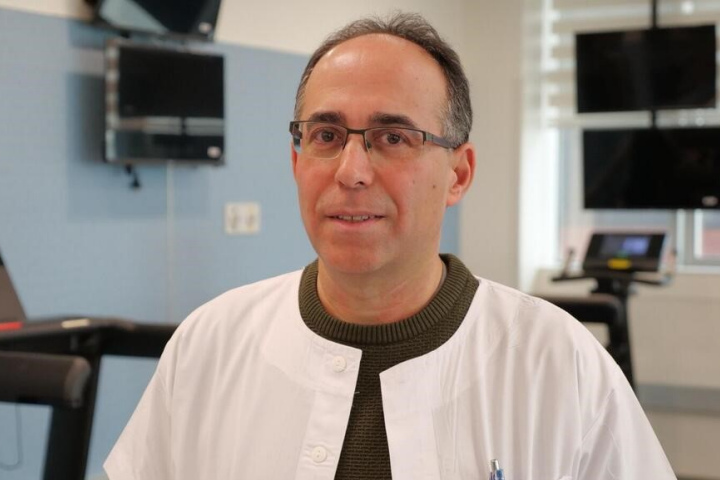Former Israeli Prime Minister Naftali Bennett’s recent cardiac event sparked renewed public interest in a topic that concerns us all: the connection between exercise and heart health. What can be learned? A Rambam expert weighs in.
 Professor Barak Zafrir.
Photography: Rambam HCC.
Professor Barak Zafrir.
Photography: Rambam HCC.
Professor Barak Zafrir, director of The Esti and Mickey Diamant Cardiac Rehabilitation Center at Rambam Health Care Campus (Rambam) and chair-elect of the Cardiovascular Epidemiology and Prevention Working Committee of the Israel Heart Society, considers the topic of heart health of critical importance. Quite simply, good heart health saves lives.
Regular physical activity helps prevent and manage cardiovascular disease, cancer, diabetes, and supports brain health and overall well-being. Experts recommend 75 minutes of vigorous or 150 minutes of moderate exercise weekly to reduce cardiovascular risk but caution that intense activity can briefly raise the risk of arrhythmia or heart attack, even in those with undiagnosed conditions.
This may explain the rare cases of young, healthy gym-goers or athletes collapsing during a workout. However, the leading cause often remains unknown, and the incidence among women is lower.
Endurance sports are growing in popularity, but Zafrir warns that intense workouts don't guarantee immunity from heart disease. Older athletes, especially those starting in their 60s or 70s, face higher cardiovascular risks due to age-related conditions like high cholesterol, hypertension, and chronic kidney disease.
Zafrir concludes that despite the need for caution, regular physical activity is encouraged across all age groups. Higher fitness levels correlate with lower rates of chronic illness and cardiac disease.
Continue reading on Ynet.

